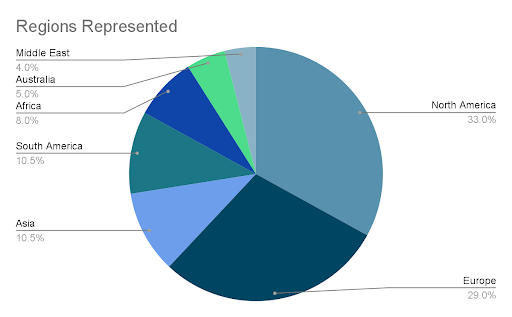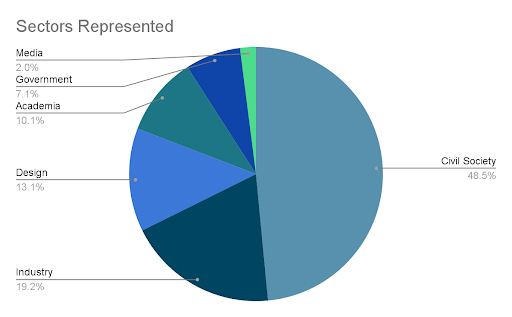Towards Trusted Design—takeaways from Prototyping the Future
This post was written by Janice Dean, 3×3; Kara Dunford, Web Foundation; and Kaushalya Gupta, Web Foundation.
Trusted Design, as defined by the Web Foundation in collaboration with key stakeholders, puts people and their needs ahead of the platform, giving the user control over their online choices.
In the first workshop of a series on Trusted Design, held by the Tech Policy Design Lab and global design partners 3×3 and Simply Secure, participants collectively imagined opportunities and ideas for advancing this practice.
The second round of workshops aimed to produce more concrete examples of solutions and interventions for Trusted Design that would involve relevant stakeholders and address the core challenges of Deceptive Design (also known as “dark patterns”). We held the workshops on three different dates to accommodate time zones and gather participants from across the globe and from across sectors. In total, we heard from over 75 participants from 25 countries. Throughout our Lab process, we have spoken with individuals from around 100 organisations from across the globe.


The participants produced a set of six recommended solutions. To learn more about these recommendations, download the full takeaways (PDF).
- Principles and Guidelines: A set of best practices for product teams to follow that can also serve as evaluation benchmarks. Principles like accessibility and clear language protect the most vulnerable user groups, including the elderly and those who are less digitally literate, from deceptive design.
- Public Awareness Campaign: An inventory of global and diverse stories that explore web users’ experiences with deceptive design and trusted design, especially highlighting voices from the Global South and marginalised communities. The stories could be turned into animations or games and used as the foundation of a social media campaign.
- Crowdsourced Reporting Tool: An opportunity to make deceptive design more visible and reportable. The reporting tool would serve as an awareness raising asset for both users and regulators.
- Evaluation Framework: A tool to judge the impact of tech design and serve as the basis for regulation. The framework would be based on the principles and guidelines noted above.
- Global Accreditation System: An incentive for companies who are looking to position their brand as Trusted Design “trailblazers”.
- Internationally Applicable Regulatory Framework: Featuring national-level regulation, a taskforce to initiate dialogues, and international standards to maintain consistency. A global coalition could be responsible for setting and seeing the “norms” or “best practices” through.
The participants also outlined key insights that must guide this work regardless of which specific recommendations are taken forward. These insights ranged from involving and centring the voices of the most vulnerable and from the Global South, to taking cross-sector approaches to tackle this issue. To learn more, download the full takeaways (PDF).
During the workshops and in our conversations on this issue, several common questions arose, including for example: what are the right incentives for these recommendations to work? how can we ensure that complaints are heard so that people feel motivated to report in the first place? Who is the global body with enough authority and legitimacy to grant accreditations? These and other questions (PDF) must be addressed as we collectively move forward.
For the next round of engagements, we plan to gather stakeholders who have demonstrated commitment and investment to advancing Trusted Design to review recommendations and discuss next steps. This will include:
- Testing prototypes developed on the basis of insights generated by our co-creation workshops and preceding research
- Reviewing and shaping recommended solutions for Trusted Design and developing action plans for implementation
- Exploring how a potential coalition would carry out the recommended solutions
If you have questions or would like to contribute to this final round of reviews and co-creation of action plans, please reach out to techlab-workshops@webfoundation.org.
We look forward to continuing our work on Trusted Design as we work to develop solutions that put people and their needs first.